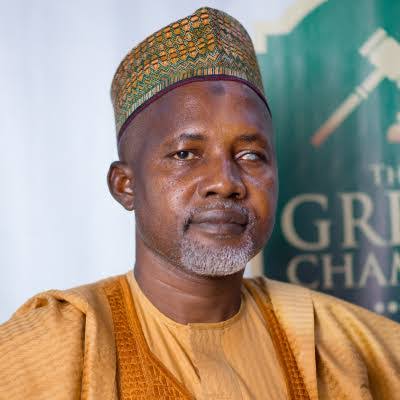FG Targets Enrollment of 825,000 Students with Disabilities in 5 years
CHIGOZIE AMADI
The federal government has reaffirmed its commitment to the provision of inclusive education and has accordingly set an ambitious target to enroll 825,000 students with disabilities cumulatively over the next five years.
Minister of State for Education, Dr. Yusuf Sununu, spoke at the First Africa Regional Conference on Equal Opportunity of Access to Higher Education.
He lamented that the challenges faced by persons with disabilities in accessing both education and economic opportunities have persisted, despite significant efforts to create equal access and opportunities for learning and employment in Nigeria.
Sununu directed all tertiary institutions in Nigeria to offer admissions to all candidates with disabilities who possess minimum admissible scores into the programs of their choice after sitting the Unified Tertiary Matriculation Examination (UTME).
He revealed that JAMB had also sought and obtained approval at the 67th National Council on Education meeting to exempt candidates with disabilities from post-UTME screening.
He charged participants at the conference to focus on discussions extending beyond access to higher education and encompasses the economic empowerment that stems from education.
He said: “As we work towards the realisation of inclusive education, we must provide the necessary physical and digital infrastructure to support various access and learning needs of all students.
“Tertiary institutions should not only be admitting students with disabilities but also be taking absolute care with regard to accessibility on their campuses.
“Besides that, teaching aids such as braille, interpreters in sign language, and digital materials prepared for various skills should be provided.
“For persons with disabilities, the impediments to education are not only compounded by general societal stigmas but also by physical limitations and institutional challenges.
“But as we have seen in various contexts, when these barriers are removed and the right conditions are created, the potential within every individual blossom.
“The brilliance, creativity, and resilience demonstrated by persons with disabilities enrich our educational institutions and, more broadly, our economies.
“It is the collective responsibility of governments, academic institutions, the private sector, and civil society to ensure that persons with disabilities are not left behind.”
Registrar of JAMB, Professor Is-haq Oloyede, on his part, called on the federal government to consider the adoption of Nigerian Sign Language (NSL) as the second national official language.
According to him, this would be a major demonstration of empathy for the large “number of fellow compatriots with hearing impairments.”.
He noted that the inaugural Africa Regional Conference on Equal Opportunity of Access to Higher Education (ARCEAHED) presents a significant opportunity for JAMB and various stakeholders within the education sector to gather vital insights on advancing inclusive education.
He disclosed that the JAMB Equal Opportunity Group, led by Emeritus Professor Peter Okebulola, has been exemplary in providing essential support for candidates with disabilities.
He called for the establishment of a centre for supportive services for persons with disabilities (PWDs).
He said the centre should be well equipped, with at least one branch in each geopolitical zone of the federation and attached to the National Commission for Persons with Disabilities (NCPWD).
He explained that if established, the centre, with the assistance of bodies such as the Joint Admissions and Matriculation Board’s Equal Opportunity Group (JEOG), would be able to attract appropriate technology and policies.
According to him, this will make life and studying easy for people with special needs.
“Education remains the cornerstone of self-actualisation, and it is our collective responsibility to ensure that every individual, regardless of his/her ability, has access to higher education.
“For this reason, JAMB is dedicated to fostering forums that facilitate discussions on innovative strategies to enhance educational opportunities for all citizens, particularly those with disabilities,” he said.
























